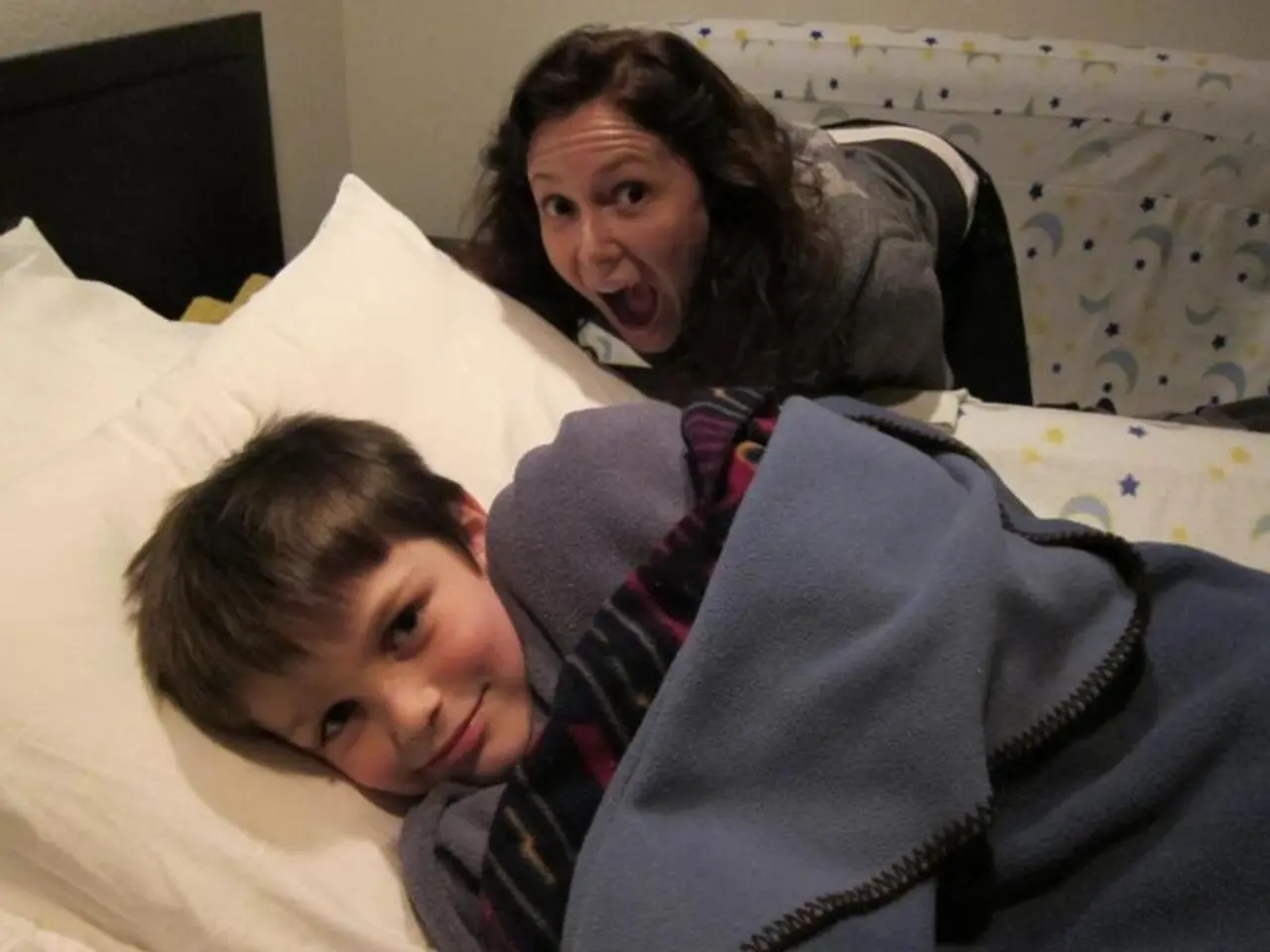Sharing Beds in Nigeria: Benefits, Drawbacks, and Safe Practices
Safe Co-sleeping in Nigeria: A Guide for Parents
Co-sleeping with a baby in Nigeria is a personal choice that requires careful consideration and understanding of its pros and cons. Here are some key safety tips to ensure a safe and peaceful co-sleeping experience for both parents and their baby.
Firstly, it's essential to have the baby sleep on a separate, firm surface, ideally designed for infants but near the parents’ bed for proximity, especially for the first 6–12 months. This helps reduce the risk of accidents and ensures the baby has a safe sleeping environment.
Avoid co-sleeping if parents have been drinking alcohol, using drugs, or taking sedating medication. These factors greatly increase the risk of fatal accidents. Similarly, do not co-sleep if either parent smokes or if the baby was premature (born before 37 weeks), has low birth weight (below 2.5kg/5.5lbs), or is unwell with a fever, as these conditions raise the risk of sudden infant death syndrome (SIDS).
Avoid using soft bedding, pillows, duvets, or stuffed animals around the baby. Babies should be placed on their backs to sleep on a firm, flat mattress without loose bedding to reduce the risk of suffocation or overheating. Manage temperature carefully to avoid overheating, using appropriate natural fabrics like cotton or merino and avoiding heavy blankets.
Once babies begin rolling over (back to tummy), transition away from swaddling and ensure a safe sleeping environment free of hazards. Establish a calm, consistent bedtime routine to encourage independent sleep, even if initially co-sleeping, helping babies learn to settle on their own.
Positioning the baby safely is another crucial aspect. Soft surfaces, such as sofas or waterbeds, should be avoided when placing the baby for sleep. Creating a safe sleeping environment is crucial when co-sleeping in Nigeria, where access to emergency services may be limited, making sanity checks on the bed environment and avoiding risk factors like parental smoking or substance use all the more important.
However, co-sleeping can have drawbacks. Babies may become accustomed to the warmth and comfort of the parent's presence, making it difficult for them to fall asleep on their own or in their own sleeping space. Co-sleeping can disrupt intimacy between partners, potentially causing strain in the relationship. Sharing a bed with a baby can make it difficult for parents to find a comfortable sleeping position. Co-sleeping can also create a dependency on parental presence for infants, making it challenging for them to transition to independent sleeping later on.
In all cases, it's crucial to seek professional advice when needed to ensure the safety and well-being of both the parents and the child. Consult local pediatric care providers for any region-specific guidelines or cultural considerations. Always remember, the goal is to create a safe and peaceful environment for both parents and their baby to enjoy a restful night's sleep.
[1] NHS UK. (2021). Co-sleeping: sharing your bed with your baby. Retrieved from https://www.nhs.uk/pregnancy/labour-and-birth/co-sleeping-sharing-your-bed-with-your-baby/
[2] Lullaby Trust. (2021). Safer sleep for babies. Retrieved from https://www.lullabytrust.org.uk/safer-sleep-advice/
[3] American Academy of Pediatrics. (2016). Safe Sleep: Reducing the Risk of SIDS and Other Sleep-Related Causes of Infant Death. Retrieved from https://pediatrics.aappublications.org/content/138/4/e20162938
[4] World Health Organization. (2016). Safe sleep for babies: a summary of recommendations. Retrieved from https://www.who.int/news-room/fact-sheets/detail/safe-sleep-for-babies
- Co-sleeping with a baby in Nigeria requires responsibility and understanding of its benefits and drawbacks, especially for the first 6–12 months.
- Ensure the baby sleeps on a separate, firm surface near the parents’ bed for proximity and safety, using a surface designed for infants.
- Parents should avoid co-sleeping if they've consumed alcohol, taken sedating medication, smoked, or are unwell, as these factors increase the risk of fatal accidents.
- The baby's sleeping environment must be void of soft bedding, pillows, duvets, or stuffed animals to prevent suffocation or overheating.
- Establish a consistent bedtime routine for the child to encourage independent sleep, even while co-sleeping, and manage the temperature carefully to avoid overheating.
- Make certain to position the baby safely, avoiding soft surfaces like sofas or waterbeds, and consult local pediatricians for any region-specific guidelines or cultural considerations.
- Co-sleeping can lead to dependency on parental presence for infants and may disrupt partners' intimacy or cause sleep position discomfort.
- To ensure the child's health, well-being, and safety, always seek professional advice on co-sleeping practices, and follow health-and-wellness, lifestyle, parenting, and home-and-garden recommendations from reputable sources like the NHS, Lullaby Trust, American Academy of Pediatrics, World Health Organization, and various scientific studies.








